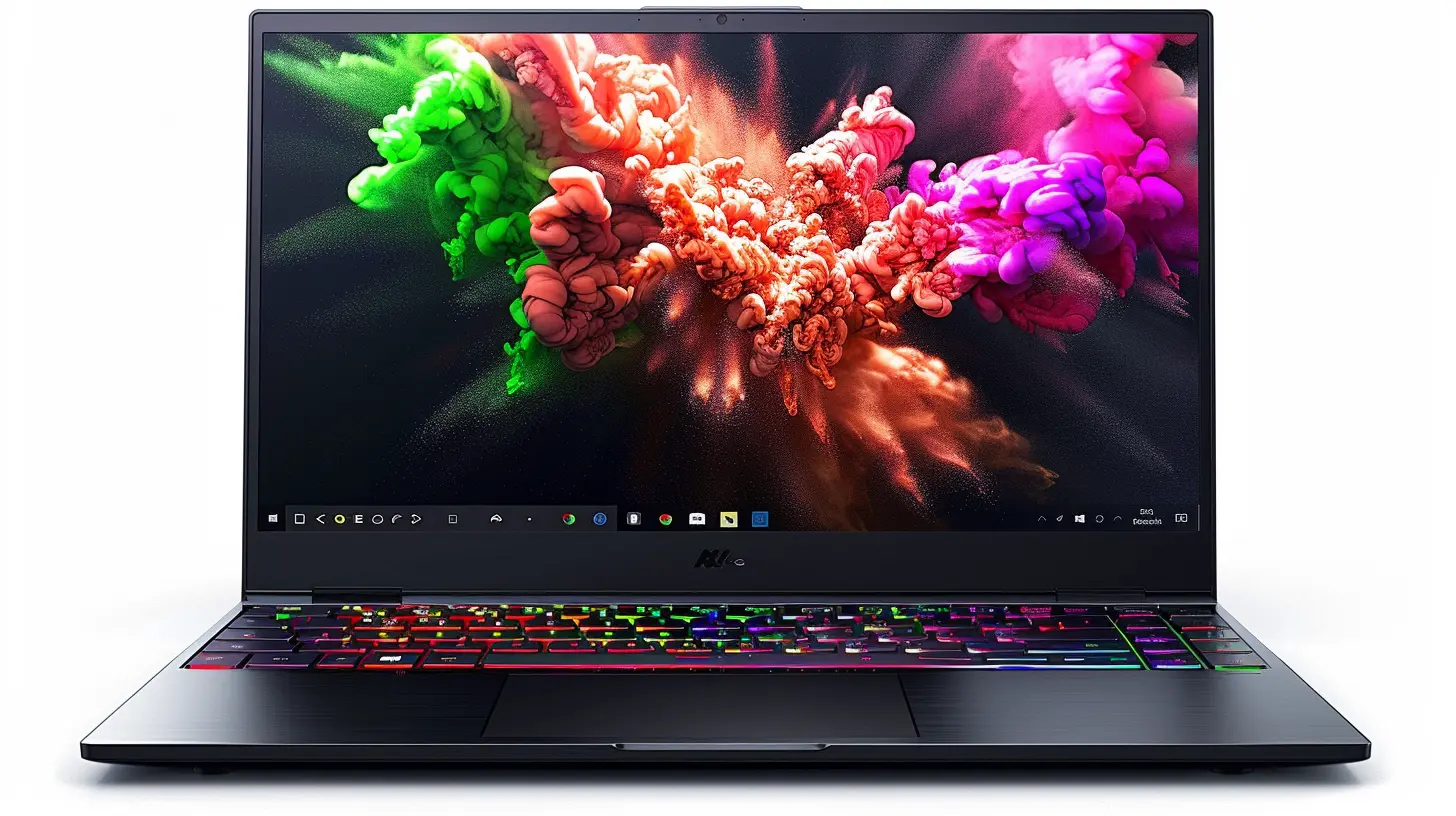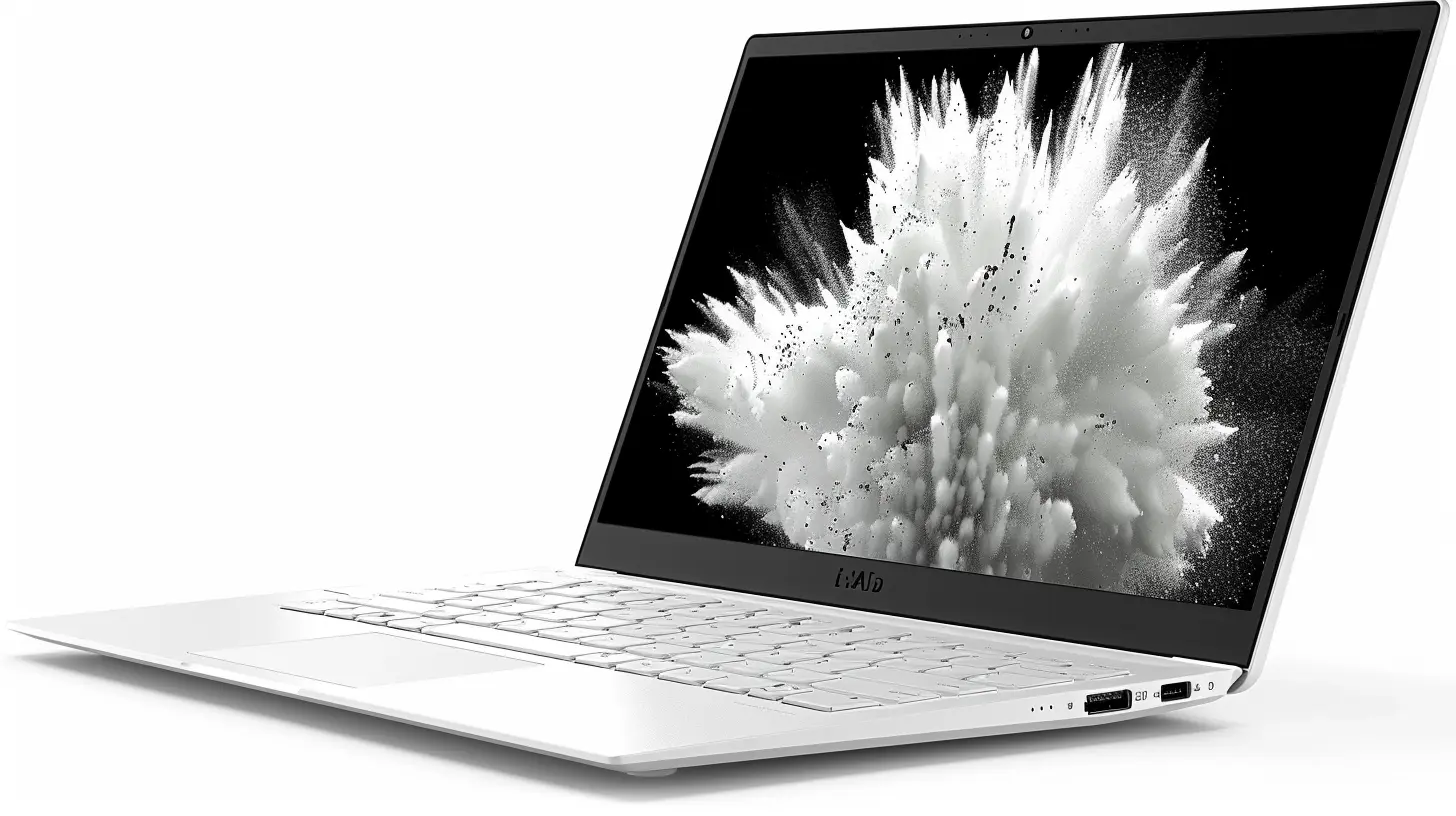How to Choose the Perfect Ultrabook for Students
15 June 2025
Choosing the right ultrabook for your academic journey can feel like finding a needle in a haystack. With so many options out there, each touting unique features and jaw-dropping specs, it’s easy to get overwhelmed. But, worry not! I’ve got your back. Whether you're a student just starting college or someone needing a serious upgrade, let’s break down the essentials to help you find the perfect ultrabook that strikes the right balance between power, portability, and price.

What is an Ultrabook, and Why Should You Care?
Before we dive into the details, let's settle one thing—what exactly is an ultrabook? In simple terms, an ultrabook is a high-performance, lightweight laptop designed for users who need a lot of portability without sacrificing too much in terms of performance. Think of it as the sports car of laptops. Ultrabooks are sleek, thin, and light, but they pack a punch when it comes to performance—perfect for students who are always on the go but still need a device that can handle their academic workload.But why should you care? Well, if lugging around a heavy, bulky laptop across campus doesn’t sound like your idea of fun, then an ultrabook is basically your best friend. Plus, with battery life that'll last you through back-to-back classes or long study sessions at the library, ultrabooks are a student's dream device.

Key Factors to Consider When Choosing the Perfect Ultrabook

1. Portability: The Lighter, The Better
As a student, you’ll probably be carrying your laptop around all day—from classrooms to coffee shops and maybe even the occasional park bench. That’s why portability is crucial when choosing an ultrabook.Look for something that weighs under 3 pounds. The whole idea behind ultrabooks is that they’re slim and lightweight without compromising on performance. A good rule of thumb? If it’s heavy enough to give you shoulder pain after a few hours in your backpack, it’s probably not the right choice.
Pro Tip:
Aim for an ultrabook that’s between 13 to 14 inches in terms of screen size. This strikes the right balance between portability and usability. Anything smaller may feel cramped, and anything larger could weigh you down.2. Battery Life: You Don’t Want to Be Tethered to an Outlet
Let’s be honest—finding an available power outlet on campus is like winning the lottery. You don’t want your ultrabook dying halfway through your day, especially during those long lectures or marathon study sessions.When choosing an ultrabook, battery life should be a top priority. Look for models that promise at least 8 to 12 hours of battery life on a single charge. Of course, "all-day battery" claims can sometimes be a bit optimistic, so it’s worth checking real-world reviews for more accurate expectations.
Pro Tip:
Some ultrabooks come with fast-charging capabilities, which can be a lifesaver. Even if your ultrabook dies, you can plug it in for a quick 20-minute charge and get a few more hours of use.3. Performance: Don’t Skimp on Power
While ultrabooks are designed to be lightweight, they don’t skimp on performance. As a student, your tasks will likely range from typing up essays and conducting research to more intensive activities like running software for design, coding, or even a little light gaming.Here’s What You Should Look For:
- Processor: Go for Intel Core i5 or i7 processors, or if you prefer AMD, Ryzen 5 or 7. These offer a good balance between power and energy efficiency.- RAM: 8GB of RAM should be the minimum. If you tend to multitask heavily (think 20 tabs open in Chrome while running a virtual machine), consider going for 16GB.
- Storage: SSD is a must. Not only do SSDs perform faster than traditional hard drives, but they also help boot up your system in seconds. Aim for at least 256GB of storage, though 512GB or more would be ideal if you have lots of files.
Pro Tip:
If you’re running resource-heavy software like Photoshop or CAD, invest in an ultrabook with a dedicated graphics card. Most ultrabooks come with integrated graphics, which are fine for everyday tasks, but heavier programs will benefit from dedicated graphics.4. Display: A Clear, Crisp Screen is Everything
You’ll be staring at your screen a lot—whether it’s for late-night study sessions, watching lectures, or, let’s be honest, binge-watching Netflix. So, a good display is essential.Key Things to Consider:
- Resolution: Aim for at least Full HD (1920x1080). Anything below that, and you’ll start noticing pixelation, especially with modern apps and websites. If you can afford it, a 4K display is stunning, but keep in mind that it can drain your battery faster.- Brightness: If you often work in well-lit environments or outdoors, look for a display that offers 300 nits or more. A dim screen can strain your eyes and make working more difficult.
- Touchscreen: Touchscreens are great for quickly scrolling through documents or taking notes directly on the screen. However, they can add to the cost and may drain battery life faster. If you don’t see yourself using it, feel free to skip this feature.
Pro Tip:
Look for ultrabooks with an anti-glare coating on the display. This will make it easier to use in bright environments, and your eyes will thank you later.5. Keyboard and Trackpad: Comfort is Key
This might seem like a minor point, but a comfortable, responsive keyboard can make or break your ultrabook experience. As a student, you’ll be typing out essays, reports, emails, and maybe even coding, so comfort is crucial.What to Look For:
- Key Travel: This is how far down the keys go when you press them. Look for a keyboard with good key travel (usually around 1.3 to 1.5mm). Too shallow, and it’ll feel like you’re typing on a flat surface. Too deep, and you might feel like you’re typing on a mechanical typewriter.- Backlit Keyboard: This is a lifesaver for late-night study sessions. Trust me; you’ll appreciate it when you’re burning the midnight oil.
- Trackpad: A large, responsive trackpad can make navigation smoother. Some ultrabooks even include glass trackpads, which feel more premium and are more responsive.
Pro Tip:
Test out the keyboard and trackpad in-store if you can. Everyone has their own preferences, and what feels comfortable to you might not work for someone else.6. Ports and Connectivity: More is Better
One of the biggest compromises with ultrabooks is the limited number of ports. Because ultrabooks are so thin, they often have fewer ports compared to traditional laptops. However, as a student, you'll still need basic connectivity options for presentations, external hard drives, and maybe even a second monitor.Must-Have Ports:
- USB-C: A versatile port that can handle charging, data transfer, and video output.- USB-A: Many ultrabooks are ditching this traditional port, but it’s still useful for connecting older devices like flash drives or external keyboards.
- HDMI: If you’ll be giving presentations or connecting your ultrabook to a projector, an HDMI port will save you from having to carry a bunch of adapters.
- Headphone Jack: Yes, some ultrabooks are even removing this. Make sure you have one if you use wired headphones.
Pro Tip:
If your ultrabook doesn’t have all the ports you need, consider investing in a USB-C hub that adds extra functionality without weighing you down.7. Price: What’s Your Budget?
Ultrabooks tend to be on the pricier side, but that doesn’t mean you have to break the bank. As a student, you’ll want to get the best bang for your buck.General Price Guidelines:
- Entry-Level Ultrabooks: $700-$900. These will have decent performance and battery life but might make compromises on storage or display quality.- Mid-Range Ultrabooks: $1000-$1500. Expect a nice balance of performance, display quality, and build materials. This price range offers the best value for most students.
- Premium Ultrabooks: $1500 and up. These machines offer top-tier performance, stunning displays, and premium build quality. Unless you need something truly high-end, you can probably save some cash by sticking to the mid-range.
Pro Tip:
Many manufacturers offer student discounts, so be sure to check if you can snag a good deal through your school or educational institution.
Final Thoughts: The Perfect Ultrabook Awaits
Choosing the perfect ultrabook as a student doesn’t have to be complicated, but it does require some thought. Keep your needs in mind: portability, battery life, performance, and budget. By focusing on these key factors, you’ll find an ultrabook that not only lasts throughout your studies but also supports you through long study sessions, group projects, and maybe a little Netflix binge-watching in between.Remember, no ultrabook is perfect, but finding the one that ticks most of your boxes will make your student life a whole lot easier—and a lot more stylish, too!
all images in this post were generated using AI tools
Category:
UltrabooksAuthor:

John Peterson
Discussion
rate this article
2 comments
Bailey McCloud
Great insights! Choosing the right ultrabook is crucial for students. Your tips on considering performance, battery life, and budget are incredibly helpful. I appreciate the practical advice for making an informed decision. Thank you for sharing!
June 19, 2025 at 12:38 PM

John Peterson
Thank you for your kind words! I'm glad you found the tips helpful. Happy ultrabook shopping!
Xeno McNeely
Great article! The tips on portability and battery life are especially helpful for students on the go. I appreciate the emphasis on balancing performance and budget—definitely key factors in choosing the right ultrabook!
June 15, 2025 at 12:55 PM

John Peterson
Thank you for your feedback! I'm glad you found the tips helpful for students. Balancing performance and budget is indeed crucial when choosing an ultrabook!


